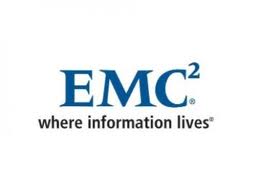Emc President Says Mobile Future Will Force Its Way In Business[/b]

Kicking off EMC World 2014 in Las Vegas, EMC president of products and marketing Jeremy Burton drew on how he used a mobile application to make a car insurance claim almost on-the-spot through his smartphone following a car accident as an example of how far technology has evolved.
Burton indicated applications such as the one he used, which he used to capture the accident in detail via a sketch, a voice recording, and providing a written recount, will redefine infrastructures of businesses. He said in order for companies to support the influx of the different kinds of information and the magnitude of them, a business would need to scale up to support it. We think these kinds of applications will redefine business in every industry. We think it's going to have a knock on effect on infrastructure inside IT and with storage being a part of that infrastructure. He suggested the next step businesses need to take is to automate the environment into a hybrid cloud model to make things more reliable, agile, efficient, and cost-effective, despite the fact that there's no real instruction guide on how they can build one.
As such, EMC has launched a series of software-defined storage technologies, including an Elastic Cloud Storage (ECS) Appliance, a scale-out cloud storage infrastructure that delivers the agility and cost benefits of public cloud, while still giving the control and security that on-premise private cloud provides. The company has suggested that it will lower total cost ownership (TCO) by between 23-28 percent when compared to TCO of public clouds from Amazon and Google. The reality is we end up going to a lot of our customers and telling them they need to consider both and a big change I've seen in the last year or two is you can't have a conversation just about private cloud, it's always private cloud and public cloud together.
Every business knows they have to render their service through mobile devices to reach the consumer as they want that direct relationship, whether it's banking, retail, or telecommunications. So now systems have hundreds and thousands of users and therefore they have to deal with more data. The transition will happen from to 2020.
In the 90's you arguably had the most innovative spell of IT ever because there was the advent of PC and workgroup servers, and it was very empowering for businesses to build new functionalities, he said. The thing is, we created a mess and chaos, so we had consolidated it. After a massive centralization of IT and it's not looked as an innovator; it's looked as a pain and cost. The good news for the IT guys is, if they get their mojo going, they can once again be in a position to transform the business and IT needs to look at that from an apps and infrastructure standpoint because the apps won't work against the existing infrastructure.

Kicking off EMC World 2014 in Las Vegas, EMC president of products and marketing Jeremy Burton drew on how he used a mobile application to make a car insurance claim almost on-the-spot through his smartphone following a car accident as an example of how far technology has evolved.
Burton indicated applications such as the one he used, which he used to capture the accident in detail via a sketch, a voice recording, and providing a written recount, will redefine infrastructures of businesses. He said in order for companies to support the influx of the different kinds of information and the magnitude of them, a business would need to scale up to support it. We think these kinds of applications will redefine business in every industry. We think it's going to have a knock on effect on infrastructure inside IT and with storage being a part of that infrastructure. He suggested the next step businesses need to take is to automate the environment into a hybrid cloud model to make things more reliable, agile, efficient, and cost-effective, despite the fact that there's no real instruction guide on how they can build one.
As such, EMC has launched a series of software-defined storage technologies, including an Elastic Cloud Storage (ECS) Appliance, a scale-out cloud storage infrastructure that delivers the agility and cost benefits of public cloud, while still giving the control and security that on-premise private cloud provides. The company has suggested that it will lower total cost ownership (TCO) by between 23-28 percent when compared to TCO of public clouds from Amazon and Google. The reality is we end up going to a lot of our customers and telling them they need to consider both and a big change I've seen in the last year or two is you can't have a conversation just about private cloud, it's always private cloud and public cloud together.
Every business knows they have to render their service through mobile devices to reach the consumer as they want that direct relationship, whether it's banking, retail, or telecommunications. So now systems have hundreds and thousands of users and therefore they have to deal with more data. The transition will happen from to 2020.
In the 90's you arguably had the most innovative spell of IT ever because there was the advent of PC and workgroup servers, and it was very empowering for businesses to build new functionalities, he said. The thing is, we created a mess and chaos, so we had consolidated it. After a massive centralization of IT and it's not looked as an innovator; it's looked as a pain and cost. The good news for the IT guys is, if they get their mojo going, they can once again be in a position to transform the business and IT needs to look at that from an apps and infrastructure standpoint because the apps won't work against the existing infrastructure.
